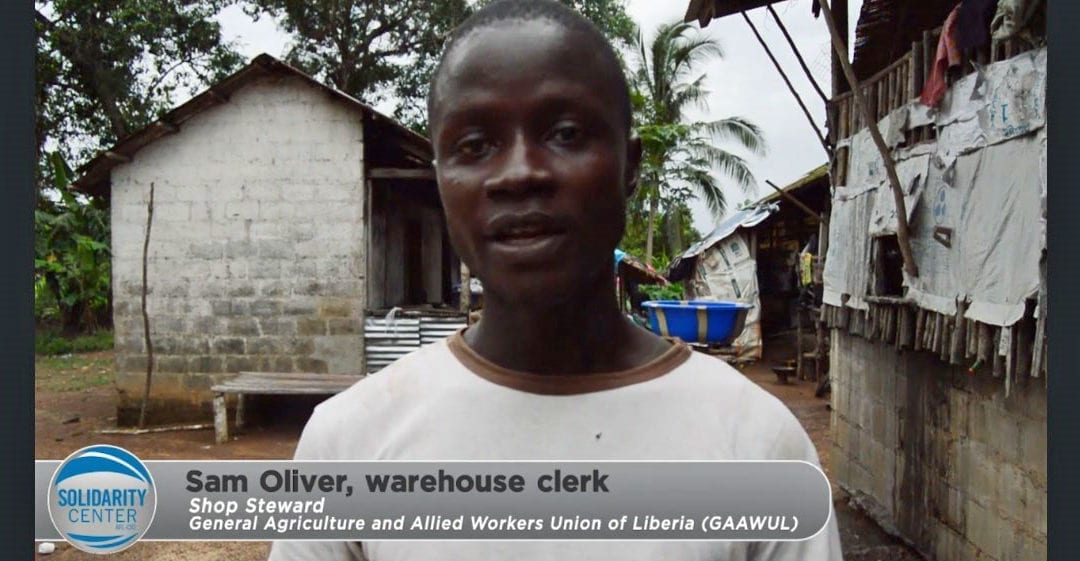
Nov 7, 2016
“When this union took over, people lived in deplorable housing. Through the intervention of this union, you can now see they are renovating some of these houses and negotiation is on the table so they can fast track the renovation.”
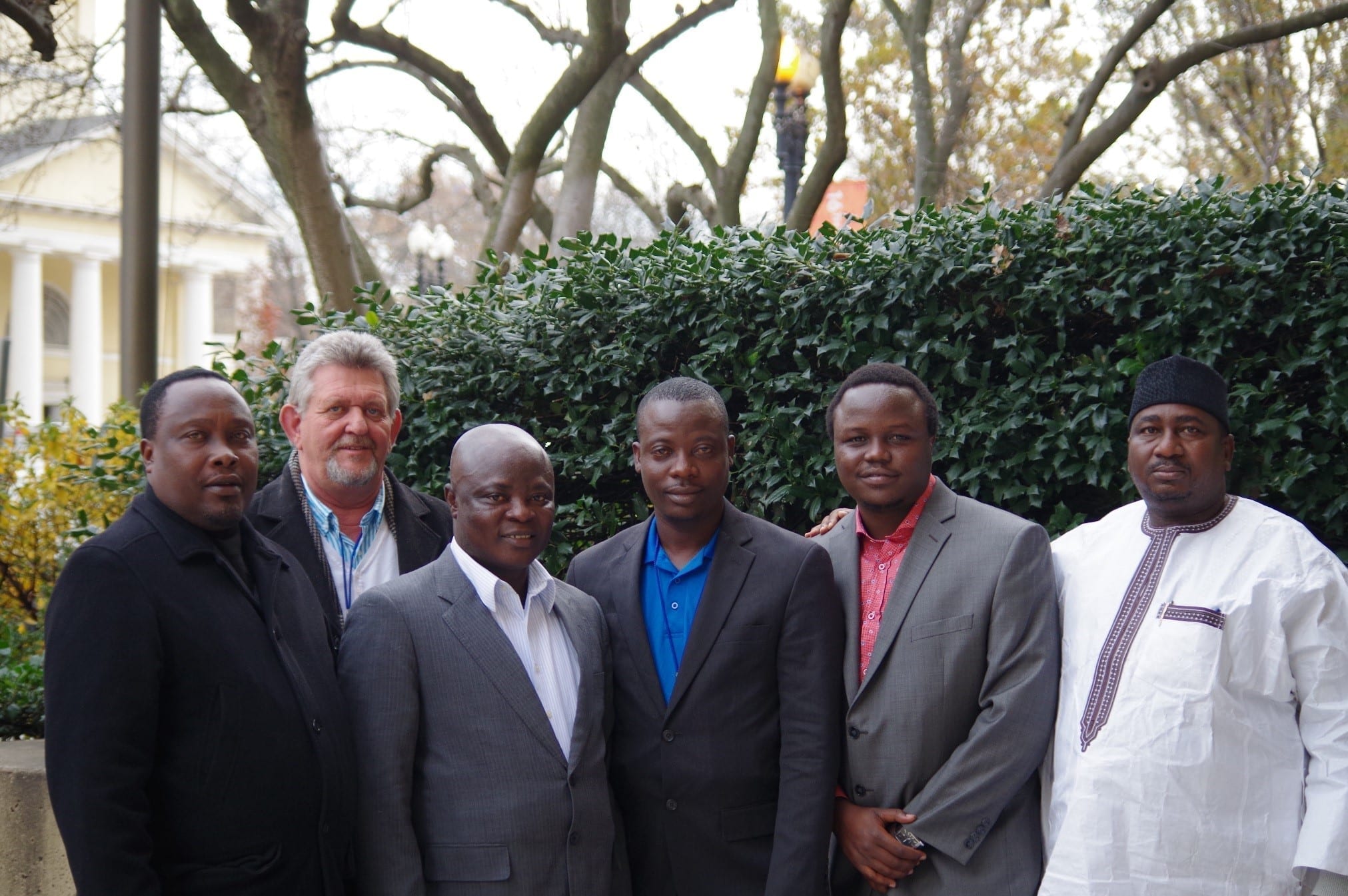
Dec 10, 2015
Addressing unemployment and underemployment, especially for young workers, is the most pressing issue for trade unions across Africa, according to participants in an African Labor Leaders Exchange Program sponsored by the Solidarity Center.
Speaking at a December 9 panel discussion at the AFL-CIO in Washington, D.C., six union leaders from Kenya, Liberia, Nigeria and South Africa discussed the challenges in securing economic prosperity for working people—and their strategies for empowering workers in the formal and informal economies.
“What faces us is high levels of unemployment, poverty,” said Edward de Klerk, deputy general secretary of South Africa’s United National Transport Union (UNTU).
“Unemployment is an African issue,” said Philip Kwoba, director of Youth Organizing with the Central Organization of Trade Unions (COTU) in Kenya. Unions in Kenya are reaching out to informal economy workers, which include many young workers, helping them form worker savings associations as a step toward unionization and gaining bargaining rights. “We are allocating resources to help,” said Kwoba.
Members of the panel, moderated by Solidarity Center Regional Program Director for Africa Imani Countess, said poverty also is fueled by low wages. “Wage inequality is this battle still we have got,” said de Klerk. In Nigeria, unions are tackling wage issues by addressing government policies that reduce the pay of public-employees, including teachers, said Muhammed Nasir Idris, National Treasurer Nigeria Union of Teachers (NUT).
Lack of employment opportunity and poverty in Liberia puts youth at risk of labor trafficking within the country’s borders, said Liberia Labor Congress (LLC) General Secretary David Sackoh.
Sackoh said labor recruiters take children from parents in their villages, promising the children will go to school in the city. Instead, the children are used in forced labor. “Even though our research shows (the children) want to return,” they are unable to do so for seven to 10 years,” he said.
Sackoh pointed to the Liberian trade union movement’s tremendous victory in eradicating child labor at the Firestone Natural Rubber Liberia plantation, and said the union movement now is working to address the issue at the seven other plantations across the country.
During questions with the audience, which included a packed crowd of union activists, policy experts and international experts, union leaders also discussed drawing more women into trade union leadership.
“Getting women elected to high offices is now on the union agenda,” said Boniface Kavuvi, general secretary of the Kenya Union of Commercial, Food and Allied Workers (KUCFAW). Kavuvi pointed to domestic workers in Kenya, represented by KUDHEIHA, as an example of dynamic organizing and strong leadership by women in Kenya. “They have done a tremendous job,” he said.
In Liberia, unions are pushing for 30 percent representation by women in union leadership, mirroring the country’s effort to increase women’s representation in the national legislature, said Isaac Grant, LLC organizing coordinator.
The six union leaders traveled to the United States for a South–South labor leaders’ exchange in which African labor leaders met with community and trade union organizers across the southern United States. The Solidarity Center worked with the U.S.-based labor education program, the National Labor Leadership Initiative (NLLI), to facilitate the exchange, sponsored by the U.S. Department of State’s Bureau of Educational and Cultural Affairs.
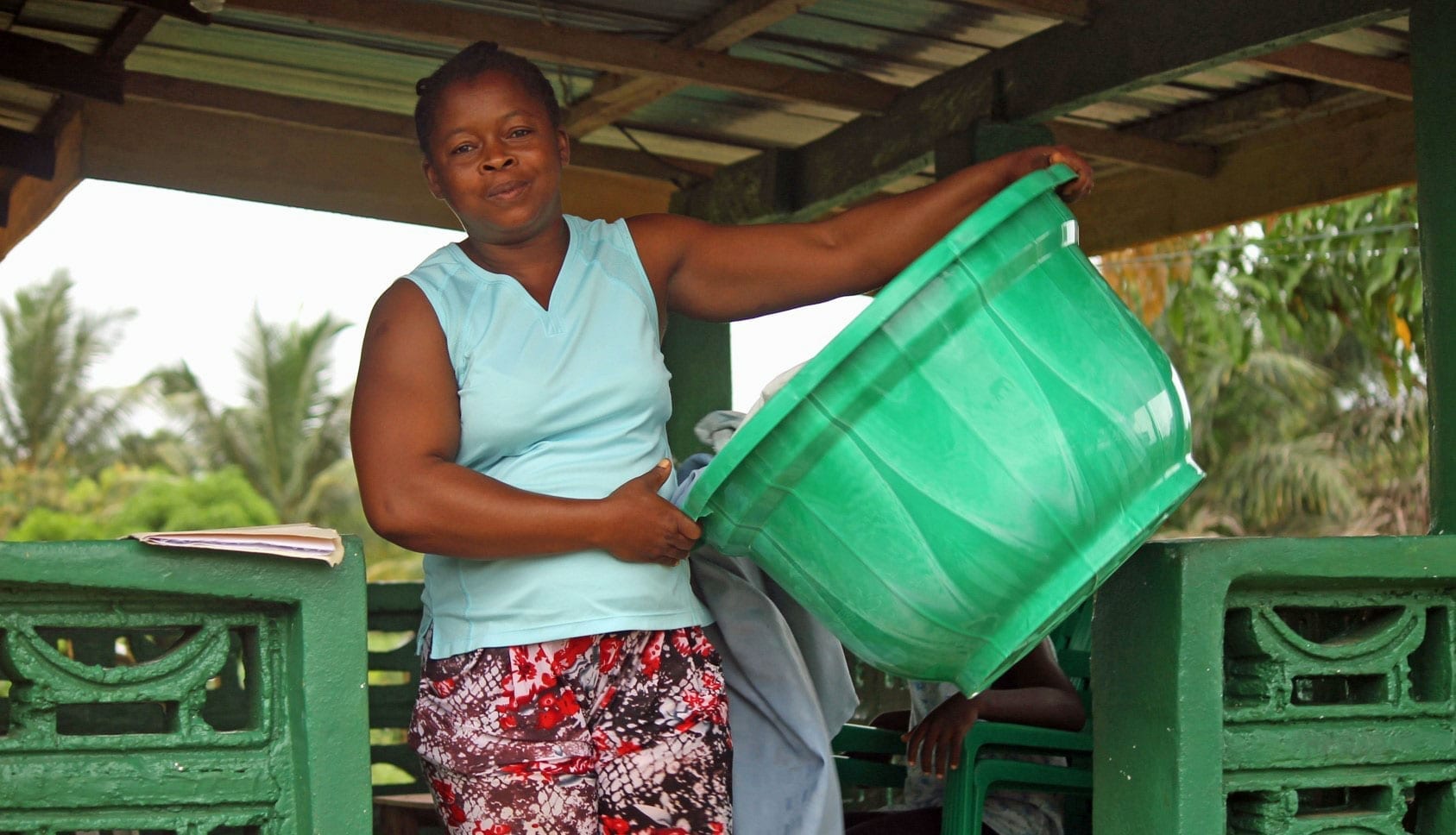
Jun 26, 2015
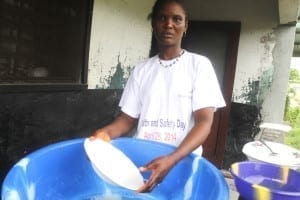
Patricia Miller at the Stephen Tolbert Estate, Monrovia. Credit: Solidarity Center/Bill E. Diggs
Liberian domestic workers and other informal-economy workers in Liberia are set to receive significant wage gains, collective bargaining rights and labor law protection under the Decent Work Bill signed today by President Ellen Johnson Sirleaf. The bill takes effect when printed into handbills for distribution.
Unskilled workers will earn a minimum of $3.50 per day, an amount that is more than five times the $15 per month salary of the lowest-paid domestic workers in Liberia, says Marthaline Cole, coordinator of the Domestic Workers Union of Liberia (DOWUL).
David Sackoh, general secretary of the United Workers’ Union of Liberia (UWUL) and the Liberia Labor Congress, was among those taking part in today’s bill-signing event.
“It’s time for us to join hands together to build and strengthen domestic workers and their union in Liberia,” Sackoh said.
Union leaders waged a years-long campaign for passage of the bill, which was delayed by more than five years over contested wage provisions. The Senate passed a final version last month.
If properly implemented, the new law will help domestic workers recover from the economic impact of the Ebola crisis, including temporary wage loss and permanent job loss.
Many employers laid off domestic workers during the Ebola crisis. Some domestic workers left their jobs to care for sick family members or to recover from illness and were not allowed to return because of social stigma around Ebola.
Until passage of the Decent Work Bill, domestic workers, like other informal-economy workers who were temporarily or permanently laid off during the Ebola crisis, had no legal protections. And only formal-economy workers were covered by the country’s labor law and could form unions and bargain collectively.
Implementation of the minimum wage may be difficult to achieve, says Cole, but the force of law is key.
“Once something is done legally I think people will pay … Definitely you have to abide by it or they can take you to court,” she says.
Inclusion of informal workers under Liberia’s labor law will help workers build collective power, says Cole. DOWUL is trying to rebuild its membership, which was slashed in half by the Ebola crisis, and the new law will enable to union to register with the government for the first time. DOWUL was organized under the leadership of the UWUL, one of Liberia’s two labor federations, and so operated without legal recognition or protection.
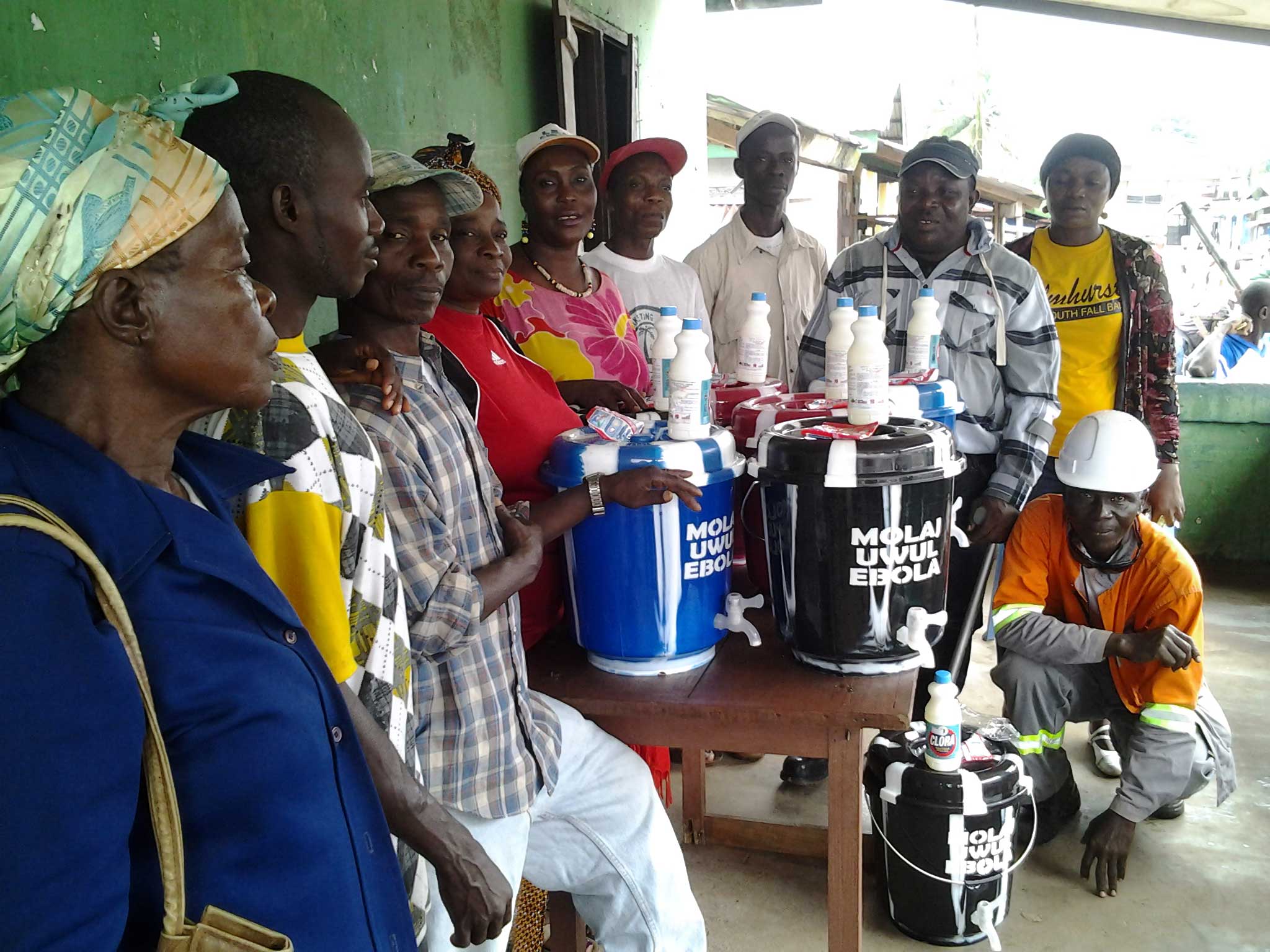
Apr 9, 2015
In Liberia, no new cases of Ebola have been reported in the past week and the overall death toll, while horrific at nearly 4,200, is far less than some health experts predicted last year—a result based in part on the coordinated efforts of the Liberian trade union movement.
Since September, Liberian union volunteers have provided Ebola awareness and preventative education to 75,843 workers and their families. In addition, volunteers have supplied 25,175 hand-washing buckets and soap to 48 workplaces and 63 communities in 13 counties, according to the Liberia Labor Congress.
The Congress also provided food to family members of Ebola victims who were quarantined, and donated 500 gallons of fuel to national and community radio stations, enabling them to step up Ebola education and awareness broadcasts for residents in remote areas inaccessible to volunteers.
“The fight against Ebola by the Liberian labor movement was crucial, as it was the first and only Ebola awareness program that directly reached and impacted on the lives of workers and their families, including community members,” says Liberia Labor Congress Secretary General David Sackoh.
The global labor movement assisted in funding the program, including the United Steelworkers in the United States and Canada and the Solidarity Center, which set up a fund for donations. Solidarity Center allies, the United Workers’ Union of Liberia (UWUL) and the Firestone Agricultural Workers Union of Liberia (FAWUL), took lead roles in the Ebola prevention and education efforts.
Last August, President Ellen Johnson-Sirleaf appointed the Liberia Labor Congress as a member of the National Taskforce on Ebola, and shortly after, the Congress launched the Ebola Awareness Education and Preventive Measures at the Workplace and the Community Campaign.
The Congress, together with the nongovernmental organization, the Movement for Labor Rights and Justice, mapped targeted workplaces and communities where Ebola cases had been registered by the government and international organizations. The Congress and its unions then selected 75 volunteers from among local union leaders, shop stewards and shop-floor members to carry out the project.
The volunteers then took part in a week-long training at UWUL, and each was tasked to reach at least 200 people in eight communities, providing them with Ebola awareness and prevention education and hand-washing supplies.

Oct 23, 2014
Union members across Liberia have taken the lead in Ebola education and prevention among workers and their families, holding awareness trainings for thousands of workers and supplying them with hand-washing buckets and sanitation cleansers donated in part through the Solidarity Center West Africa Ebola Fund.
At the Firestone Natural Rubber Plantation in Margibi County, where more than 11,000 full-time and precarious workers labor, and where 75,000 people live in 125 Firestone camps and in nearby communities, the Firestone Agricultural Workers Union (FAWUL) leaders and shop-stewards have so far reached 1,337 people in eight camps with protective equipment and information. FAWUL is a longtime Solidarity Center ally.
Working with the Movement for Labor Rights & Justice (MOLAJ), a nongovernmental organization, FAWUL has distributed 191 chlorine-filled hand-washing buckets. FAWUL members living in the area are closely monitoring use of the buckets, are teaching community members how to mix the water and chlorine, and encouraging them to replenish the chlorine when it runs out. The buckets are placed where people frequently gather, such as at community water pumps, and distributed to households with more than eight occupants.
Among workers at ArcelorMittal Liberia (AML), the United Workers’ Union of Liberia (UWUL) and UWUL Local 4, together with MOLAJ, reached 750 people through labor’s Ebola awareness and preventive measures campaign, providing 50 hand-washing buckets in communities in the Buchanan area, where a majority of AML workers live. UWUL, also a Solidarity Center ally, reached 21 disabled workers and 35 sight-impaired workers with awareness and prevention training, providing hand-washing buckets and $100 from the local union to replenish the chlorine.
Elsewhere, the Dockworkers Union (DOWUL) is reaching out to workers in Monrovia’s port; the General Agricultural and Allied Workers’ Union of Liberia (GAAWUL) has held education trainings for nearly 1,000 workers and their families living in camps at the Sime Darby Rubber and Oil Palm Plantations; and UWUL also is engaging workers at the Putu Iron Ore Mining company.
Liberia accounts for more than half of all the official Ebola deaths, nearly 2,500, and some reports indicate that figure is much higher. Women in Liberia—because of their roles as caregivers and their work in precarious informal economy jobs and as health care workers—are overwhelmingly affected: Up to 75 percent of people killed by Ebola have been women. Children orphaned by the disease often are left alone to survive in the street.





